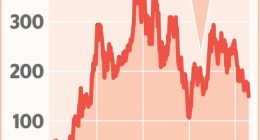
New e-commerce rules in India have plunged Amazon and Walmart’s local operations into disarray, as the retailers struggle to comply with new restrictions in a key growth market.
The legislation was outlined last year but came into force on Friday. The Indian government introduced the rules in order to level the playing field between global tech giants and domestic sellers. As a result, foreign online retailers are now banned from negotiating exclusives on products, or from selling items via vendors they hold an equity stake in.
According to reports from Bloomberg and Reuters, a last-minute rush to comply has caused chaos. Both Amazon’s Indian site and Walmart’s Flipkart (a local retailer the US company bought a majority stake in last year), have pulled thousands of products offline. The New York Times reports that as many as 400,000 items accounting for a third of Amazon’s estimated $6 billion in annual sales in India could be at least temporarily affected. These include Amazon’s own devices, such as the Kindle, Fire TV Stick, and Echo speakers.
Between them, Amazon and Flipkart account for more than 70 percent of online sales in India, meaning the changes will likely cause widespread disruption.
Both companies previously petitioned the Indian government for extensions to the old regulatory regime. Amazon asked for four months’ extension and Flipkart reportedly asked for six months. “With over [400,000] sellers and hundreds of thousands of transactions happening daily on the Amazon India Marketplace we need adequate time to understand the details of the policy,” a spokesperson for Amazon told CNN.
The rules are likely to hobble Amazon and Walmart in the short term — a serious blow in a country that both firms targeted for key international growth. Retail in the 1.3-billion strong nation is dominated by small shops and sellers, with only 10 percent of sales going to chain stores. Online e-commerce giants saw this as natural territory for expansion.
These same small sellers, though, have chafed at what they see as predatory pricing from the likes of Amazon and Flipkart. Lobbying from organizations like The Confederation of All India Traders, which claims to represent more than 70 million small retailers, has been fierce, triggering this new response from Prime Minister Narendra Modi’s government.
Analysts suggest it will take months for Amazon and Walmart to adapt to the new retail environment, leading to slow revenue growth. According to CNN, The Confederation of All India Traders expressed “deep satisfaction” at the government’s actions.
This article is from The Verge









